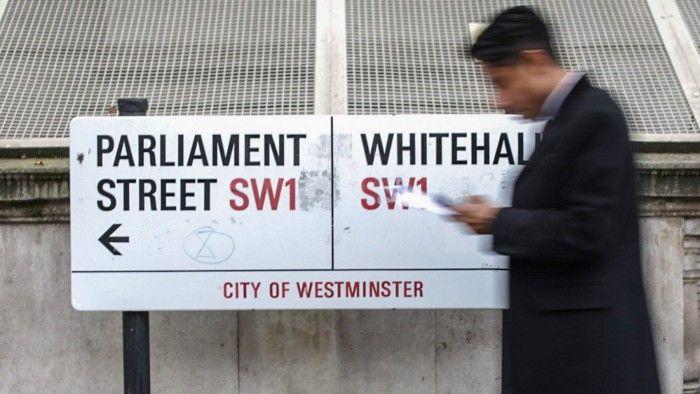UK Government Study: Microsoft Copilot AI Boosts Civil Servant Productivity, Saving 26 Minutes Daily
4 Sources
4 Sources
[1]
UK govt study: Copilot AI saved workers 26 minutes a day
That's how much on average they saved with Microsoft Copilot AI, according to a GDS study The United Kingdom's Government Digital Service (GDS) has found that giving civil service employees access to Microsoft 365 Copilot saved them an average 26 minutes per day on office tasks. Microsoft 365 Copilot provides generative AI assistance with various Microsoft Office applications like Word, Excel, PowerPoint, Outlook, and Teams. It allows workers to accomplish some tasks through a natural language chat interface instead of mouse movements and menu clicks. UK Technology Secretary Peter Kyle discussed the results of the study in a presentation at SWSX London. "Whether it's helping draft documents, preparing lesson plans, or cutting down on routine admin, AI tools are saving civil servants time every day. That means we can focus more on delivering faster, more personalised support where it really counts," said Kyle in a statement The GDS ran a trial of Microsoft M365 Copilot with 20,000 government employees from September 30, 2024, through December 31, 2024. Based on self-reported data, the resulting study [PDF] showed fairly consistent time savings across professions and organizational ranks, though precise tool use and benefits varied. "Over 70 percent of users agreed that M365 Copilot reduced time spent searching for information, performing mundane tasks, and increased time spent on more strategic activities," the report says. "Perceived concerns with security and the handling of sensitive data led to reduced benefits in a minority of cases. Limitations were observed when dealing with complex, nuanced, or data-heavy aspects of work." The report claims if the reported time savings were replicated across a full working year, "users could save 13 days." That figure was apparently calculated by using the median values of six reported ranges: No time savings (17 percent); less than 5 minutes saved (5 percent); 5-10 minutes saved (13 percent); 11-30 minutes saved (28 percent); 31-60 minutes saved (23 percent); and more than an hour saved (14 percent). Our calculations differ slightly. If you assume 26 minutes saved per employee per day, on average, and count every one of the 365 days in a non-leap year as a working day, you've saved 9,490 minutes or about 6.59 days. More plausibly, with 253 working days in 2025, the potential time savings would be something like 6,578 minutes or 4.59 days. The study didn't investigate whether the workers used this extra time to do more work, take extra time for lunch, or head off to the pub early. "Due to experimental constraints it was not possible to identify how time saved was spent," the report says. Nonetheless, M365 does appear to have the potential to save some time for office workers. And even using the more modest projected time savings of 4.59 days per employee per year, the £19 per employee per month cost of a Microsoft Copilot Pro subscription in the UK appears to be worthwhile. Other organizations, like the Australia and New Zealand Banking Group (ANZ Bank), have previously reported productivity gains from AI tool usage. A separate report issued by the UK's Alan Turing Institute found that about 40 percent of public sector employee time could be supported by generative AI, thereby freeing public sector staff from laborious tasks through automation. "Our research shows that generative AI has the potential to greatly support the delivery of public sector work, assisting time-pressed staff with the completion of administrative tasks and freeing them up to focus on other elements of their jobs," said Youmna Hashem, research associate in AI for public services at the Alan Turing Institute, in a statement. "However, it is vital for these technologies to be embedded in ways that are safe, responsible, and which take into account the many complexities of public sector work. If the government introduces generative AI effectively and staff receive the training and assurance they need to confidently use the technology, this could meaningfully transform the way that public sector time is spent." ®
[2]
UK civil servants who used AI saved two weeks a year, government study finds
Civil servants who have used artificial intelligence tools for administrative tasks freed up two weeks a year in working time, according to a government trial that ministers said showed how the technology can achieve productivity gains across Whitehall. In the study, more than 20,000 officials used Microsoft's Copilot AI assistant over three months to help them draft documents, summarise meetings and prepare reports. These staff reported that they saved 26 minutes a day by using the tool. Prime Minister Sir Keir Starmer's government said it was pushing to make £45bn in cost savings by modernising the public sector with digital services and cutting-edge AI. However, some experts have also warned that the technology still suffers glitches that may not make it suitable for official work. Ministers are also trying to attract overseas investment into the nascent AI sector by relaxing copyright laws, a move heavily criticised by the British creative industries groups. "AI is changing the way government operates, helping us work smarter, reduce red tape, and make better use of taxpayers' money," said technology secretary Peter Kyle while unveiling the results of the study during the SXSW London conference on Monday. During the UK government trial, workers at Companies House used Copilot to handle routine customer queries, draft responses and update records. Staff at the Department for Work and Pensions used it to personalise advice for jobseekers. The tool was best at saving time drafting documents and creating presentations, which respondents said saved them 24 and 19 minutes a day respectively. However, 17 per cent of respondents said the tool did not save them any time at all. Civil servants also reported overall happiness with the tools, with 82 per cent saying they wanted to continue using the technology. A separate report also released on Monday by the Alan Turing Institute, a state-backed research body, found that up to 41 per cent of tasks across the public sector could be supported by AI. It said teachers had most to gain, through using AI tools for the majority of lesson planning. In January, the government also announced it was developing a suite of AI tools called "Humphrey" for civil servants to boost productivity. Officials said they were developing new digital tools for citizens such as a new app to access government services, a chatbot and a digital wallet, which allows people to store government documents such as driving licences. Authorities around the world have also experimented with AI tools with mixed results. Last year, a chatbot by New York City that was designed to help entrepreneurs was taken down after it encouraged users to break the law. There also remain risks with the technology when applied in ways beyond using generative AI for efficiency gains. The use by UK police forces of predictive policing algorithms, which claim to predict where crime is likely to happen, has drawn harsh criticism from human rights groups such as Amnesty International, which argue that these systems entrench racism and biases. In 2021, the Dutch government had to resign after tax authorities used AI tools to weed out benefits fraud, only for the algorithms to be found to be biased against migrant communities and other marginalised groups, leading to thousands of innocent people being penalised.
[3]
Microsoft AI tools saved British government workers 26 minutes a day, new study shows
Government workers in the United Kingdom reported that using Microsoft 365 Copilot's artificial intelligence tools for routine tasks saved them 26 minutes a day on average, which could free up roughly two weeks a year for other work. The results come from a three-month trial including 20,000 civil service employees. Participating organizations included the UK's Ministry of Justice, the Department for Energy Security and Net Zero; a department overseeing welfare, pensions and child services; and others. The employees used the technology for tasks such as drafting documents, managing emails, scheduling meetings and creating presentations. The study is part of a broader initiative to incorporate tech innovations into UK government operations in order to streamline work, save costs and improve the delivery of services to the British public. UK Technology Secretary Peter Kyle shared the trial results today alongside former Prime Minister Tony Blair at a keynote presentation at SXSW London. "AI is changing the way government operates, helping us work smarter, reduce red tape, and make better use of taxpayers' money," Kyle said. That sentiment is shared across the pond where Washington State Department of Commerce Director Joe Nguyen is embracing AI to boost productivity and performance in his organization. Nguyen, a former Microsoft manager, recently built his own AI assistant using OpenAI technology, allowing him to simplify the department's contract compliance process, compressing days of staff work into minutes. Nguyen last week told GeekWire that by delivering visible results within his own department, particularly with AI and project management tools, he hopes to demonstrate the value of innovation and set an example for other state agencies to follow. "My goal isn't just to make Commerce more effective, more efficient," he said. "My goal is to make all of [state] government more effective and efficient." Employees largely seemed open to using the new tools. The UK study found that workers liked using the new AI tools: 82% reported they would not want to give them up. Other findings showed that 17% of respondents said the Copilot tools led to no time savings, while 14% said it saved them an hour or more per day. Workers provided comments on the technology, including feedback from employees with dyslexia and dyspraxia, which affects motor skills, who noted the tools made work easier and helped them deliver better results. Criticisms focused on concerns about the technology's shortcomings in handling nuanced or complex information and data. A story in the Financial Times noted that some other efforts to incorporate AI into UK government functions have generated criticism, including a police force initiative using predictive policing algorithms to predict where crime is likely to happen. Critics said the technology will reinforce racism and biases.
[4]
Using AI tools such as Microsoft Copilot could save UK civil servants weeks every year
The UK government had 20,000 civil servants across 12 different organizations use Microsoft Copilot over the course of several months, using the service to draft documents, take meeting notes, search internal information, and even personalize recommendations to unemployed job seeker benefits claimants. The study claimed to find major productivity and efficiency boosts from using Copilot, with the workers saving on average between 19 and 24 minutes per day -- amounting to around two weeks per person per year. The study, which took place over September 30 to December 31 2024, says these savings were the equivalent of giving a full year back to 1,130 people, allowing them to focus on higher-value tasks rather than admin-based work. "These findings show that AI isn't just a future promise - it's a present reality," commented Technology Secretary Peter Kyle. "Whether it's helping draft documents, preparing lesson plans, or cutting down on routine admin, AI tools are saving civil servants time every day. That means we can focus more on delivering faster, more personalised support where it really counts." The study also signified the largest deployment of Microsoft Copilot in UK government to date, with workers utilizing the platform across the likes of Word, Excel, PowerPoint, Outlook, and Teams. "AI is the most transformative technology of our time and we're already seeing its potential to reshape public service delivery," noted Darren Hardman, CEO, Microsoft UK. "This could unlock new levels of growth, efficiency, and innovation for the country. The Government's Microsoft 365 Copilot experiment shows what's possible when people are empowered with the right tools: 26 mins per day (almost 2 weeks per year) less time on admin, more time delivering what matters. And the really exciting part is, this is just the beginning."
Share
Share
Copy Link
A UK government trial of Microsoft 365 Copilot with 20,000 civil servants shows significant time savings and productivity gains, potentially freeing up two weeks per year for more strategic work.
UK Government's Groundbreaking AI Trial
The United Kingdom's Government Digital Service (GDS) has conducted a landmark study on the use of artificial intelligence in the public sector. The trial, involving 20,000 civil servants across 12 different organizations, focused on the implementation of Microsoft 365 Copilot from September 30 to December 31, 2024
1
2
. This initiative marks the largest deployment of Microsoft Copilot in UK government to date, showcasing a significant step towards AI integration in public services4
.
Source: TechRadar
Impressive Time Savings and Productivity Gains
The study's most striking finding was that civil servants using Microsoft 365 Copilot saved an average of 26 minutes per day on office tasks
1
. This time saving, when extrapolated over a full working year, could potentially free up about two weeks per employee for more strategic activities2
. The AI tool proved particularly effective in drafting documents and creating presentations, saving users 24 and 19 minutes per day respectively2
.Wide-ranging Applications and User Satisfaction
Copilot's applications were diverse, ranging from handling routine customer queries at Companies House to personalizing advice for jobseekers at the Department for Work and Pensions
2
. The AI assistant was used across various Microsoft Office applications, including Word, Excel, PowerPoint, Outlook, and Teams4
. Notably, 82% of participants expressed a desire to continue using the technology, indicating high user satisfaction3
.Government's Perspective on AI Integration
UK Technology Secretary Peter Kyle emphasized the transformative potential of AI in government operations. "AI is changing the way government operates, helping us work smarter, reduce red tape, and make better use of taxpayers' money," Kyle stated at the SXSW London conference
2
4
. This trial is part of a broader initiative to modernize the public sector, with the government aiming to achieve £45 billion in cost savings through digital services and AI implementation2
.
Source: GeekWire
Broader Implications and Future Potential
The success of this trial aligns with findings from other studies, such as one by the Alan Turing Institute, which suggests that up to 41% of tasks across the public sector could be supported by AI
2
. Microsoft UK CEO Darren Hardman views this as just the beginning, stating, "AI is the most transformative technology of our time and we're already seeing its potential to reshape public service delivery"4
.Related Stories
Challenges and Considerations
Despite the overall positive outcomes, the study revealed some limitations. About 17% of respondents reported no time savings from using Copilot
1
3
. Concerns were also raised about the technology's ability to handle complex, nuanced, or data-heavy aspects of work1
. Additionally, there are broader considerations about the responsible implementation of AI in government, including potential biases and the need for proper training and assurance for staff1
3
.Global Context and Future Directions

Source: FT
The UK's initiative reflects a growing trend of AI adoption in government sectors worldwide. However, it's crucial to note that AI implementation in public services has had mixed results globally. For instance, a chatbot in New York City designed to help entrepreneurs was taken down after encouraging illegal activities
2
. The UK government is also developing its own suite of AI tools, dubbed "Humphrey," further indicating its commitment to AI-driven efficiency in the public sector2
.References
Summarized by
Navi
[1]
Related Stories
Google Study: AI Adoption Could Save UK Workers 122 Hours Annually and Boost Economy by £400 Billion
25 Apr 2025•Business and Economy

UK Prime Minister Starmer Unveils £45 Billion AI-Driven Public Sector Transformation Plan
13 Mar 2025•Policy and Regulation

OpenAI declares code red as Google's Gemini 3 gains 200 million users in three months
02 Dec 2025•Technology

Recent Highlights
1
Google Gemini 3.1 Pro doubles reasoning score, beats rivals in key AI benchmarks
Technology

2
ByteDance's Seedance 2.0 AI video generator triggers copyright infringement battle with Hollywood
Policy and Regulation

3
ChatGPT cracks decades-old gluon amplitude puzzle, marking AI's first major theoretical physics win
Science and Research





